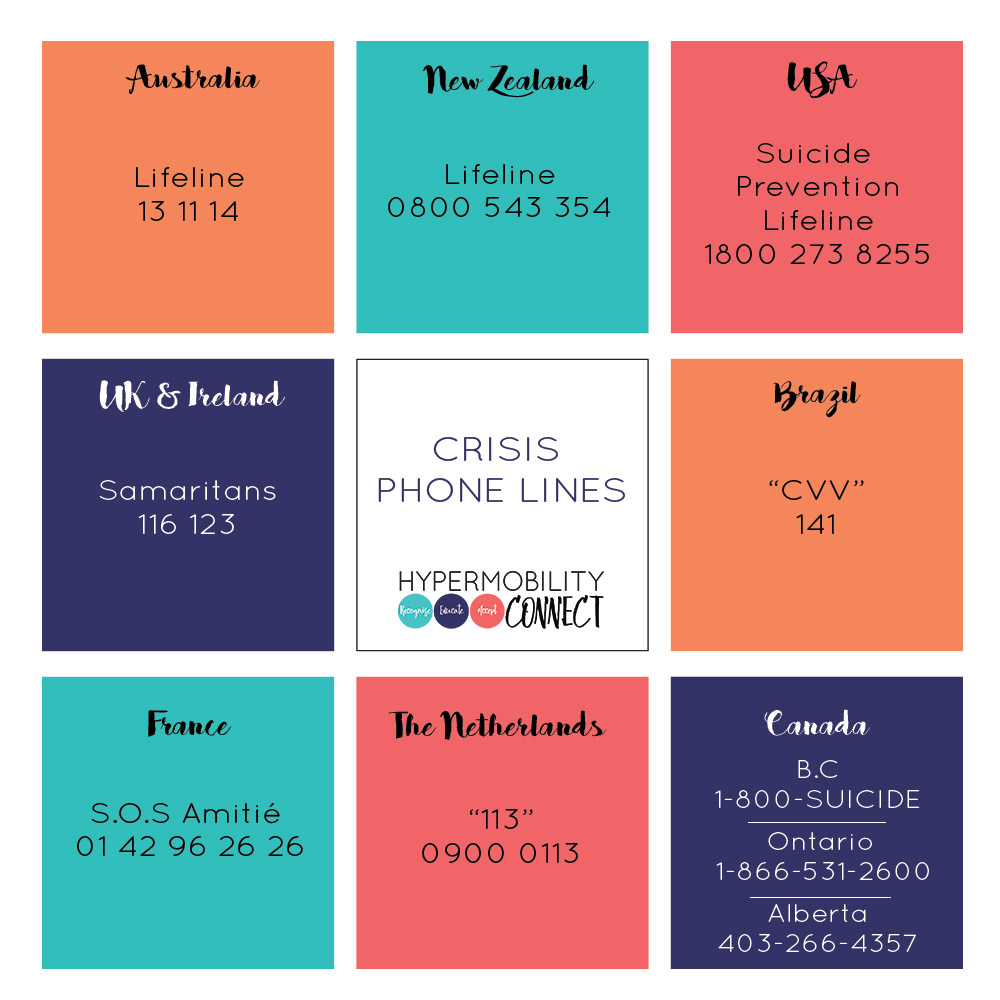The Power of a Diagnosis
*Trigger warning: mentions adverse mental health effects of medication/suicidal ideation*
In the lead up to Hypermobility Awareness Week, asked Sarah from Western Australia about her experience living with a hypermobility related disorder. Sarah is now 35 years of age, has had symptoms her whole life, and was only diagnosed at 33, with Hypermobility Spectrum Disorder.
Sarah feels that there have been many obstacles to receiving her diagnosis, including doctors dismissing her pain due to age, gender and appearance. She admits that her own “just get on with it” attitude probably added to the time it took; after being dismissed over and over, it’s hard to keep dusting yourself off and fighting for the diagnosis you know you need, right?
When the diagnosis finally comes
Once she received her diagnosis, Sarah recalls getting worse before she started improving. She says, “My sternum crunches, my teeth are loose, but my shoulder and thumb on my dominant side are usable again, and the hip subluxations are spreading out from weekly to every few months.”
Sarah says, “I feel stronger, more confident, and have more control over my body since doing physiotherapy.” Not uncommonly, she also says there are other symptoms that she hasn’t had treated because of her lingering distrust in medical professionals.
When asked about who has helped most on her journey thus far, she replied, “My physio is a wonderful human and is good with me both in understanding that my body struggles with what they have asked me to do, and also my social issues.” When probed further, she says, “Being believed by a musculoskeletal specialist that knows how to help has been such a game-changer.”
Impact on Mental Health
Pain and chronic health-related issues often impact mental health. Sarah recalls, “I’m less depressed now, mostly. In the past, doctors kept putting me on anti-depressants rather than looking for a cause of my pain. Unfortunately, the anti-depressants I tried made me suicidal.” Suicidality is a known side effect of some anti-depressant medications, and like a lot of people with hypermobility conditions, it can feel like all of the side effects that can happen, do happen. Fortunately, many people can tolerate anti-depressants without these side effects.
Since being diagnosed, Sarah recalls that she is a lot kinder to herself, asking, “Would I expect that much from one of my other disabled friends? And if not, I can let myself not do it”. Sarah is learning to treat herself with the compassion she deserves and gives to others. Now that she knows the cause of her pain (her hypermobility spectrum disorder) she feels better able to manage her symptoms, and treat herself more kindly.
Awareness campaigns, like The Hype About Hypermobility, often alert people in the community to the possibility that their own symptoms may be part of a hypermobility-related disorder. If you’re wondering if you might have a hypermobility condition, you may find the following resources helpful:
Hypermobile Ehlers-Danlos Syndrome
You are not your diagnosis
It’s also important that you don’t let your pain and symptoms, and a possible diagnosis define you. You are still you. There are things you can still do. Sarah likes to go hiking, which she tries to do each weekend. “I love birds, and they’re everywhere in this city.” On more sedentary days, she enjoys writing, which she finds also helps her hands (whether handwriting or typing).
We asked Sarah if there was something that she would like people to know about her, and she had two replies.
For my work life - I’m not “just lazy”; I know I look healthy, but I can’t work in industrial isolation without the risk of fainting into industrial equipment, so please, suck it up and take one for the team, or buddy me!
For her personal life: Please don’t touch me. I hate it, and it hurts.
Like with every condition, people manage things in an individual way. It’s so important to ask people about their condition, how they manage it, what help they may need, if anything. Always ask permission to touch or hug someone, health condition or not.... consent is always important!
If you need mental health support, contact the helpline in your country

